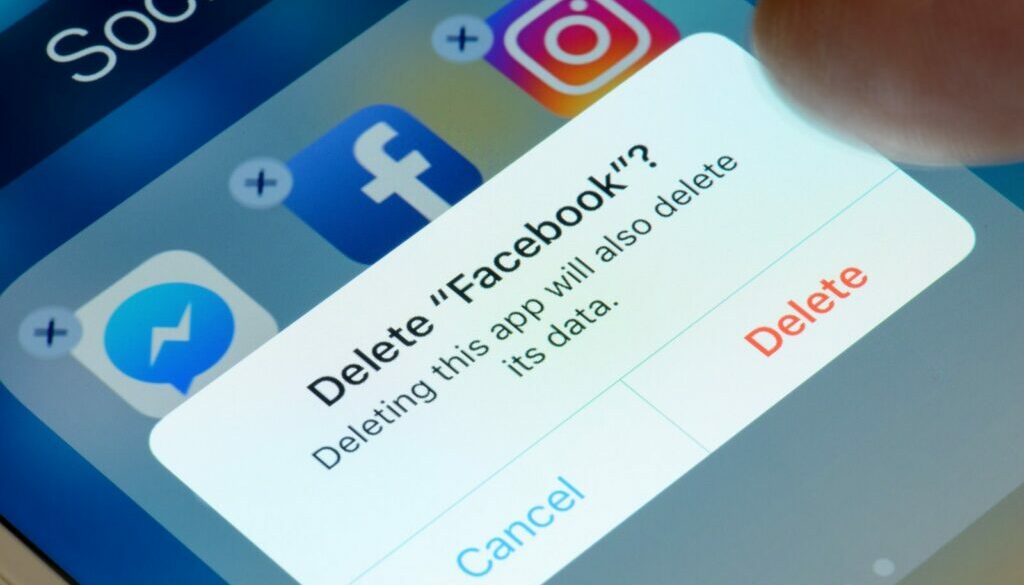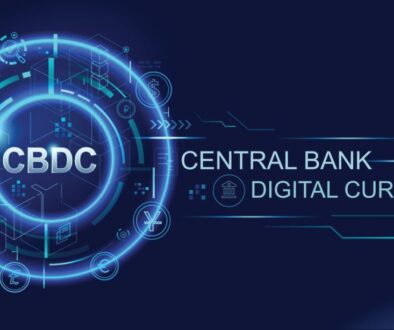Quitting Social Media
“I’m quitting social media,” you declare. Suddenly a feeling of freedom washes over you as you’re no longer concerned with likes, views and who’s doing what. You stop hunching over your phone and your posture straightens, elongating your spine and immediately you’re an inch taller than just before. You weightlessly drift away from the endless scroll to a trailhead in the mountains. Your free time is filled by strolling through meadows, journaling, meditation, long conversations and lots and lots of “being present.”
Or at least that’s what some of the “I quit social media and it changed my life” blog posts would have you believe. Unfortunately, dropping social media alone will not lead you to full self-actualization. But that doesn’t mean the idea is entirely without merit, either.
In improving your health and wellness, no one change is going to drastically alter your entire life (We know. We’re sorry. We were really hoping it would be green smoothies.). A series of small behavioral changes that lead to positive habits make a lasting impact. Can quitting social media be one of those changes? Absolutely. Some research suggests that social media is harming us in several ways. But that doesn’t mean it’s all bad and cutting it off entirely could have both positive and negative effects on your life.
We weigh the pros and cons.
To Quit Social Media …
Quitting social media is not just a trend or something to make you seem ultra-enlightened. Research has revealed some valid reasons why you might want to toss aside your virtual networks.
Happiness and Mood
Our happiness is one of the most important aspects of our lives. Still, we check on the very thing that might be chipping away at our happiness dozens – or hundreds! – of times a day.. Studies have shown that social media can have a negative effect on your life satisfaction and subjective well-being. Evidence also suggests that social media is linked to depressive symptoms.
We know more about the end result, that those who use social media more tend to be less satisfied, than we do about what causes this result. Social comparison is often cited, because your friends are likely posting about the new job they got and not the 14 jobs they applied for and didn’t get before that. Looking at others’ perpetual highlight reel, versus your own behind-the-scenes life, can make you feel inadequate if you don’t feel like you have anything “post-worthy” at the moment. The Happiness Research Institute also found that people on Facebook had trouble concentrating, felt less present and thought they were wasting their time at a higher rate than peers not using Facebook.
If you’re on social media a lot, enough research suggests that you might want to run your own little experiment to see if a social media break or decrease can boost your mood.
Self-Esteem
What if you can’t hit those selfie angles quite like a Kardashian? (P.s. They hired a photographer for that “selfie.”) Or your entire Facebook community seems to be getting promotions while you can’t seem to impress your boss or get ahead at work?
Social media makes you a lot more aware of what is happening in your world and if you feel like you don’t stack up to those around you it can have a negative effect on your self-esteem. The era of filters, Instagram models and influencers, online fitness celebrities and readily available photo-editing tools can be particularly burdensome on our self-esteem. Two studies looked particularly at the effect of selfies and determined that looking at others’ selfies harmed self-esteem and caused women to compare themselves negatively to others. Another study found that social media use correlated with feeling unattractive.
Going back to social comparisons, Facebook might also be making you feel less successful in your career and relationships.
In just minutes, you can easily be inundated with images of people who seemingly have it better than you in one way or another. Just remember that social media is not real life and every post is made by a person (Well, except for the bots. Actually, there are a lot of bots posting.) and that person has ups and downs, too.
Sleep
So many of us are not getting enough sleep. In fact, the Centers for Disease Control and Prevention (CDC) reported that 35 percent of Americans don’t get the recommended seven hours of sleep a night. But when it comes time to actually go to sleep so many of us get in our comfortable pajamas and cuddle up cozilly with a … cold chunk of glass, metal and plastic that emits a hue of light and messages that inhibit our sleep.
Yes, the light from our devices, particularly the blue hue that is common, is disruptive to sleep in itself. And one study found that young adults who check social media more frequently and for more time, have greater sleep disturbances.
And given the impact sleep has on the rest of our health, it’s wise to find a way to detach your phone from your bedtime routine.
To Not Quit Social Media …
Frankly, this argument is not as common. And you’re not going to shake up your social networks when you post, “I’ve decided to continue using social media at my current pace!” But particularly in our current reality there are advantages to using social media, provided you do it judiciously.
No Mo’ FOMO
We may not love it, but much of the news about our friends and family is communicated via social media. Particularly as we age, spread out geographically from old friends and family and start families, we have less time to check in via the old-fashioned methods. And the Fear of Missing Out (FOMO) is a well-known feeling to certain generations raised with social media as the norm.
So if you disconnect from social networks you’re simply going to miss pregnancy and engagement announcements, baby pictures, birthday invites, good news and the latest and greatest in memes, goofy kids and cat videos. The thing about quitting social media is all the people you care about don’t magically also quit at the same time and spend their newly-found free time texting and calling you with updates.
Yes, you can make other efforts to stay in touch and up-to-date with what is happening with your friends and family. Certainly, previous generations manage this feat. But sometimes social media simply makes keeping up easier and without it your could feel out of touch and isolated.
The Internet is Good, Actually (Sometimes)
We’ll level with you, a lot of content on social media is probably mean, not particularly useful, unwanted ads, false or somehow otherwise bad. But it also doesn’t take that much digging to find some really positive, uplifting content online.
Body positivity is represented, heard and seen on social media in a way it simply wasn’t in previous generations. Writers with relatively modest Twitter followings can cultivate a loyal community that has donated hundreds of thousands of dollars to charity, including $132,000 to Hurricane Harvey victims. Social media aids in many natural disasters, human rights revolutions and other worthy endeavors. Not to mention crowdsourcing local recommendations for everything from finding a handyman to planning a vacation.
These are just a few ways social media can and has been used for good. You can find your own way. Just remember that you’re in control of your feeds. Bring in the positive and block out the rest. That’s what the mute and block functions are for, or at least that’s how we choose to employ them.
Expand Your Networks
Social media has helped us break down our geographical and ideological barriers and connect with people we wouldn’t be able to otherwise. Sure, that means some overly intense political and sports opinions find their way into your feed, but it also allows you to learn about groups and opinions you don’t see in your everyday life.
Particularly if you live in a remote or non-diverse area, social media can expose you to people and viewpoints you simply wouldn’t encounter where you live. Ideas about new books, movies, activities and interests all help to create a more well-rounded view of the world. If you’ve recently moved, social media can help you build a network around common interests or causes.
And while LinkedIn can be kind of a punchline online, if you sift through the spam and use it to your advantage, it can be a worthwhile networking tool and resource for professional development. And depending on your industry, Twitter, Instagram or lesser-known platforms can be just what your business needs to reach that next rung of success.
This is far from a comprehensive list. Do your own research if you’re considering deleting social media.
Yes, social media is bad. It’s also good. Like most things on the internet, it depends on how you use them. Filter out the negativity, limit your social media exposure, use it for the right reasons and bring your own positivity to your online world.
If you feel like social media is making you less happy, then maybe it needs to go. Just make a plan to replace the positive you do find in social media.



